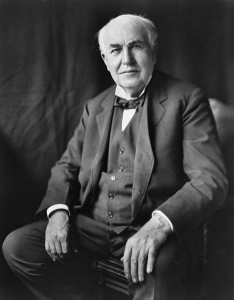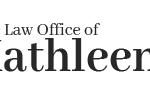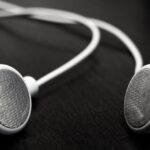
by Kathleen Lynch | Aug 19, 2014 | Entrepreneur, Patent
I am taking a break this week in my usual focus on intellectual property law, to give a shout out to the NCLEAP program here in North Carolina. I preface this by disclosing that I am an NCLEAP volunteer and sit on their steering committee.
NCLEAP (North Carolina Lawyer Entrepreneurial Assistance Program) is about a 7 year program that was established by North Carolina lawyers to provide pro bono assistance to low income entrepreneurs. Since its inception, it has assisted over 1000 entrepreneurs and small businesses. Volunteer lawyers from across the state provide low income entrepreneurs with pro bono corporate and intellectual property law advice and other legal matters relevant to a start up venture.
NCLEAP relies on donations to operate. If you are a lawyer licensed to practice in North Carolina, consider donating your time and expertise to help out a new business or entrepreneur. If you like the NCLEAP program, consider making a donation.

by Kathleen Lynch | Jul 22, 2014 | Examiner, Patent, Prosecution
The US Patent Office is expanding its Patent Examiner Technical Training Program. The Patent Office is seeking voluntary assistance from technologists, scientists, engineers, and other experts from industry and academia to participate as guest lecturers and provide technical training and expertise to patent examiners regarding the state of the art.
Guest lecturers must have relevant, historic and current technical knowledge, including industry practices/standards in technological areas of interest. Guest lecturers must also have relevant technical knowledge, as well as familiarity with prior art and industry practices/standards in areas of technologies where such lectures would be beneficial.
So if you or someone you know has expertise or knowledge in a cutting edge area of technology, here’s a chance to help an examiner out.
Having the right person to help you identify and protect your intellectual assets is critical. The Law Office of Kathleen Lynch is designed to help businesses such as yours keep ahead of the game. The first telephone consultation is free. Email us at [email protected].
by Kathleen Lynch | Jun 2, 2014 | Patent
Attention starving entrepreneurs, college students and all others with not much other than a great idea. As part of the recently enacted America Invents Act, the US Patent Office is developing a patent pro bono program. The US Patent Office, in conjunction with state bar associations around the country, will help pair qualified individuals with patent attorney volunteers who will assist in helping to obtain patent protection. Currently, at least part or all of 20 states have pro bono programs offering assistance, with more slated to begin operation within 2014 and 2015. The current pro bono programs are limited to residents of:
Alaska Arizona California Colorado Delaware District of Columbia Idaho Hawaii Louisiana Maryland Massachusetts Minnesota Nevada New York North Carolina Ohio Oregon Pennsylvania Texas Virginia Washington Wyoming
If you are a resident of one of the states is listed above, Pro-bono assistance is now available, to be considered and apply go to the Federal Circuit Bar Association National Clearing House.
If your resident state is not listed above please do not apply for assistance at this time. The North Carolina Bar Association has begun accepting applications. Go to the NCLEAP (North Carolina Lawyers for Entrepreneurs Assistance Program) page of the North Carolina Bar Association website.
To apply, the Federal Circuit website will ask for basic information about your invention, including a brief description, to help in the referral process. Should your application pass the first level of screening at the national clearinghouse, it will be forwarded to the appropriate regional program. All following correspondence will come from the regional program.
Acceptance into a state or regional pro bono program requires each potential pro bono client to be screened for certain criteria. Some of these criteria include:
- Gross household income – region dependent, but most limited to 300% of the poverty levels
- Example 1 – a single person could have an income of up to $34,470 (3 times the current single person poverty level of $11,490);
- Example 2 – a family of 4 could have a gross income of up to $70,650 (3 times the current family of 4 poverty level of $23,550).
- Knowledge of the patent system – demonstrated by having an application on file with the USPTO or by successfully completing the certificate training course. Many regional pro bono programs require successful completion of the certificate training to be considered for the program.
- Having an invention, not merely an idea – to demonstrate that there is an invention one should be able to describe the invention so that someone could make and use the invention.
There may be additional requirements imposed by the state or local organization working with the US Patent Office. Once you have cleared these hurdles you will be put in touch with a local bar association and paired with a volunteer patent attorney who will help you to prepare, file, prosecute and hopefully obtain your patent.

by Kathleen Lynch | Jul 8, 2013 | Patent
Usually the Patent Office website provides a gateway to other information, such as a patent or trademark search information, related forms, general information, etc. However, on the home page, there are news items and information worth checking out. One of those is the IP Awareness Assessment Tool. This tool provides basic information for inventors and small businesses to help identify IP needs. In particular, the tool is a series of questions posed to help you understand what IP you may have and/or what IP you may want to protect. For example, you may think that you may need a copyright registration to protect your marketing material, but in fact, it might be more appropriately addressed and protected by trademark or service mark registration.
Having checked out the pre-assessment tool myself, I think it is a helpful starting point to those who are individual entrepreneurs, or small businesses who have not yet sought any IP advice. However, I would not rely on the tool alone and would seek advise from an attorney experienced in IP issues.

by Kathleen Lynch | May 11, 2013 | Patent
One provision in the America Invents Act enables a third party to submit to the U.S. Patent Office prior art patent references and publications relevant to a published application. This can be done in for up to six months from publication, before the first Office Action, or notice of allowance, the latter of the three. The party submitting the information must point out the relevance of the patent references and publications. A party may submit up to three references without cost. After that, the cost is $180 for ten.
This new procedure enables anyone to provide further insight and assist with ensuring that the patentability hurdle is cleared. However, this can also prove to be a double edged sword. If a submission is reviewed by the patent examiner and the patent issues, then the weight and deference given to the examination process may prejudice any subsequent challenges after issuance. As a result, pre-grant submissions should be carefully considered before filing.
Companies should have in place or begin structuring a review or “watch” process or system. This would track areas of technology relevant to corporate interests, including particular known inventors, and competitor companies (although assignments may not be in place by publication date and may prove to be more difficult to track). This system will help companies to keep track of what is in the patent pipeline and to prepare for a pre-grant submission if it is deemed appropriate. As Thomas Edison once said “good fortune often happens when opportunity meets with preparation.” So, when it comes to pre-grant submissions, be prepared.

by Kathleen Lynch | Apr 24, 2013 | Patent
We hear a lot these days about cost cutting and austerity. I also hear a bit of grousing from time to time from people who use IP legal services about costs. I believe inventors and companies can find reasonably priced intellectual property law services when the potential client does her homework.
First, check out smaller cities, towns and suburbs. Larger cities have higher overhead costs. Firms pay more for rent, salaries etc. Smaller cities and towns have many talented patent firms, attorneys and agents equally qualified to do the work at more reasonable rates.
If you are focusing on patent preparation and prosecution, you don’t need to stay in your own backyard. With the internet, Skype, and all of the wonderful modern tools of connectedness, your patent agent or attorney can be as close or as far away as you want them to be. Documents are easily exchanged via the internet, and telephone and video conferences can connect folks who are time zones apart. Where there is a significant distance, time zones may become an issue, but you will find that most patent attorneys and agents are willing to provide the necessary flexibility to make the relationship work, including trips to your offices at a discount or gratis in exchange for keeping your business.
Background matters. Take a look and ask questions about what kind of work your patent attorney does. What was his or her major in college? Did they work as a scientist or engineer before they practiced patent law? If so, what did they do? What is the focus of their present practice? If you are looking for someone to prepare and file a patent application, you don’t want to work with someone whose experience is limited to patent litigation. Just like you wouldn’t allow your internist to perform heart surgery, you don’t want someone with a chemistry background preparing patent applications for you if you are in the high tech industry. Find someone who has the technical background suited to your project, as well as the experience needed to meet your needs. In looking for possible patent attorneys or agents, check out the US Patent and Trademark website which enables you to search either for a particular person or those registered to practice before the US Patent Office in a particular location. Once you have that, check out their credentials and ask questions before you make your decision.
Selecting the right patent attorney is important to ensure your patent strategy is managed by someone with the appropriate experience and background. The Law Office of Kathleen Lynch PLLC has over 20 years of experience in the preparation and prosecution of patent applications and is designed to help businesses such as yours keep ahead of the game. The first telephone consultation is free. Email us at [email protected].








